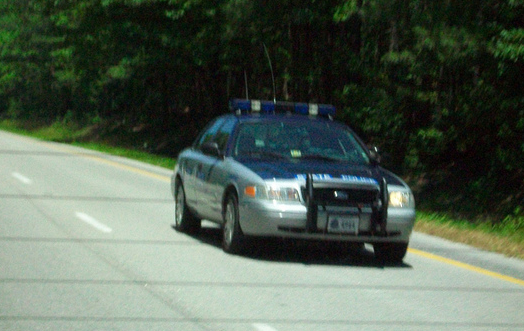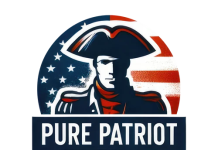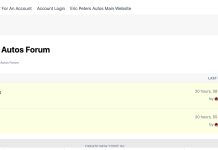VIRGINIA STATE TROOPER HARASSMENT
Date of Interaction: 22 Sept. 2014
Individual Responsible: Trooper J M Buzzard
Outfit: Virginia State Police
Phone: (804) 674-2000
My wife and I were driving on 460 near Appomattox at around 1330 heading home, when a trooper – J.M. Buzzard – came up to us and kept passing – looking over at me and staring. He slammed on his brakes pulled in behind us and pulled us over. He approached me and asked why I was being pulled over. I said I didn’t know. He said it was because I wasn’t wearing a seatbelt. My wife told him “Sir, he had his seatbelt on the whole time since we left Lynchburg.” Buzzard cut her off, called her a liar and said “Well I will give you the benefit of the doubt” in sarcastic way.
Since Buzzard couldn’t give us a ticket he leaned over to look at the front windshield and said “I’m pulling you over for expired inspection.”










The Magna Carta Libertatum – The Great Charter of the Liberties of England, was issued by the King at Runnymede, near Windsor, England in 1215.
Originally an attempt to negotiate peace between an unpopular King and a group of rebel barons. It was overseen by the Archbishop of Canterbury.
The charter promised the rights of the church, protection for the barons from illegal imprisonment, access to swift justice, and limitations on feudal payments to the Crown.
It was implemented thru a council of 25 neutral barons. Neither side stood behind their commitments and it was annulled by the Pope after 2 months, leading to civil war.
After the king’s death, the regency government of his young son, Henry III, reissued the document in 1216, stripped of some of the more radical content, in an unsuccessful bid to build political support for their cause.
At the end of the First Barons’ War in 1217, it formed part of the peace treaty agreed at Lambeth, where it acquired its name Magna Carta, a reference to its considerable size.
Needing of funds, Henry III reissued the charter in 1225 in exchange for a grant of new taxes. His son, Edward I repeated the exercise in 1297, which became its final version and this time confirming it as part of England’s statute law.
The charter became part of English political life and was typically renewed by each monarch, though over time the fledgling English Parliament kept multiplying the laws, and lost much of its practical significance.
In 1600, there was an upsurge in interest in Magna Carta. Lawyers and historians at the time believed that there was an ancient English constitution, going back to the days of the Anglo-Saxons, that protected individual English freedoms.
They argued that the Norman invasion of 1066 had overthrown these rights, and that the Magna Carta had been a popular attempt to restore them, making the charter an essential foundation for the contemporary powers of Parliament and legal principles such as habeas corpus.
Though this historical account was badly flawed, jurists such as Sir Edward Coke used Magna Carta extensively in the early 1600s, arguing against the divine right of kings propounded by the monarchs.
Both James I and his son Charles I attempted to suppress the discussion of Magna Carta, until the issue was curtailed by the English Civil War of the 1640s and the Charles’ execution.
The political myth of Magna Carta and its protection of ancient personal liberties persisted after the Glorious Revolution of 1688 until well into the 19th century.
It influenced the early American colonists in the Thirteen Colonies and the formation of the American Constitution in 1789, which became the supreme law of the land in the new republic of the United States.
Research by Victorian historians showed that the original 1215 charter had concerned the medieval relationship between the monarch and the barons, rather than the rights of ordinary people, but the charter remained a powerful, iconic document, even after almost all of its content was repealed from the statute books in the 19th and 20th centuries.
Magna Carta still forms an important symbol of liberty today, often cited by politicians and campaigners, it is held in great respect by the British and American legal communities.
Lord Denning famously describing it as “the greatest constitutional document of all times – the foundation of the freedom of the individual against the arbitrary authority of the despot”.
Yeh. Post is off-centre, but readable.
If Will D. is looking for accountability, the cop was trying desperately to have probable cause for an interaction, in which case he decided on the seatbelt, which ended up being a lie. Any case that begins with a lie is null, void and of no legal force or effect thereafter.
He ultimately had no probable cause in which to pull Will over – note that a “check” is not probable cause either. It was harassment plain and simple. The cop needs to be held to account.
I think everyone here knows what law I live under:
http://knowyourrightsgroup.com.au/files/d_police_powers.pdf
Will, understand that precedents made in Common Law countries are able to be used in other Common Law countries, mine being Australia and the U.S. being another.
That knowyourrights group is great. I listen to all their broadcasts and download them for future reference. At least DR is familiar with the Magna Carta.
Thanks To5. Everyone should be familiar with the Magna Carta, because there’s a monument to it just outside the High Court of Australia. Anyone who says that the Magna Carta, even the Constitution of Australia mean nothing and are not recognised are liars. Australian magistrates’ courts don’t recognise either and therefore are not only criminals, but involved in treason.
The post is off center, but the cop’s name is right on. A scavenger named Buzzard? Priceless.
“through the District’s open records law. Half of the more than $5.5 million in cash seizures were for $141 or less, with more than a thousand for less than $20.” …
http://armstrongeconomics.com/armstrong_economics_blog/
I DId Not Know That.
Did you?
I wonder, what about everywhere else?
I didn’t see a spot on the main page to post this, … this seems as good as any.
Posting this was my draw to visiting tonight.
…It’s funny how People get sidetracked.
P.S.
BTW, this blog post is “off-center” in my browser. Seems like half the words on the left are missing a whole lotta letters, rendering the entire thing unreadable.
The “point” comes through clear enough though. …We’re surrounded by bastards, and ruled by the same.